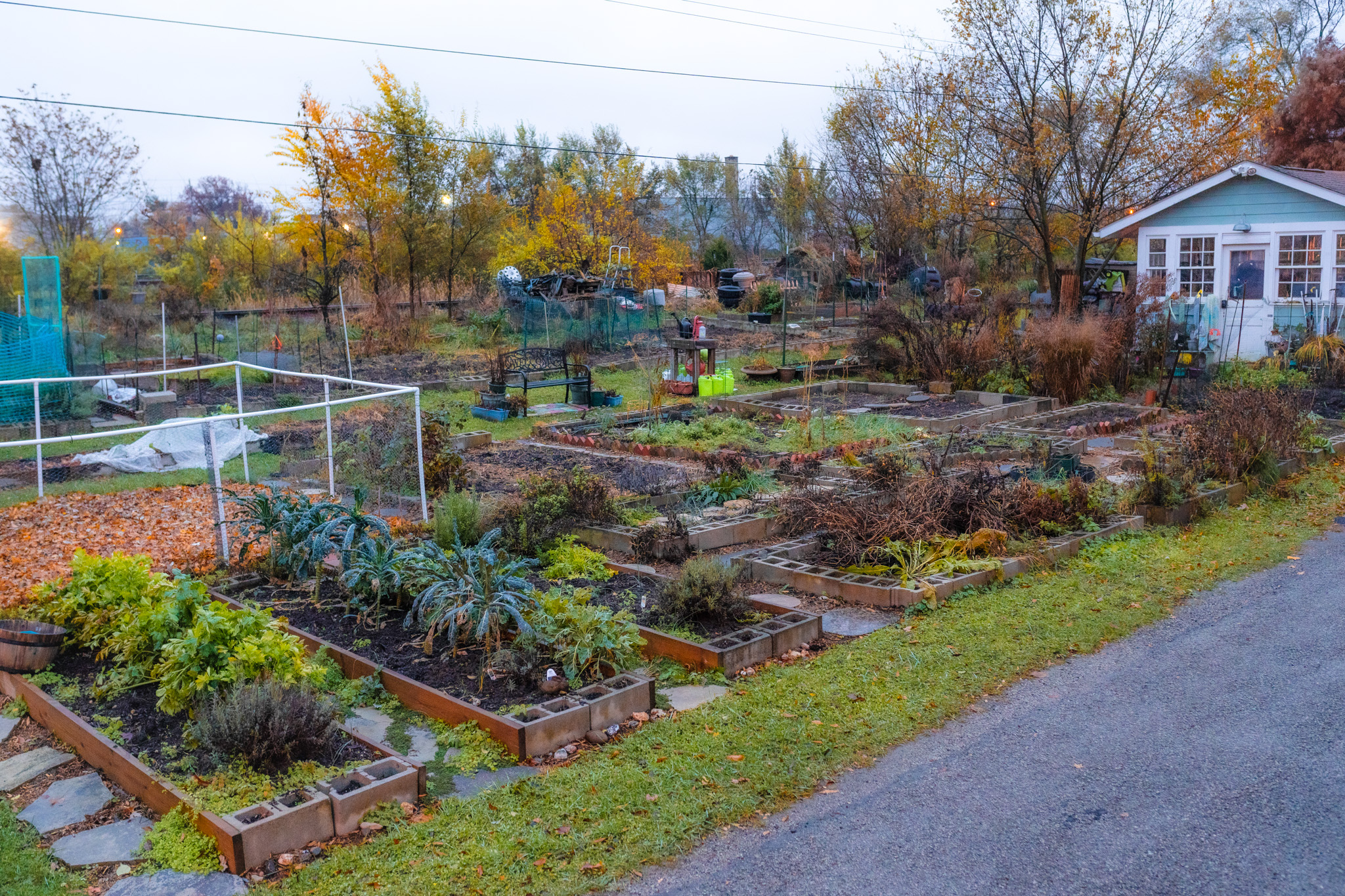Opinion
Op-Ed: Biden’s Sudden Change of Heart

Only two weeks after barring illegal immigrants from seeking asylum at the U.S. southern border, President Joe Biden has reversed his restrictive policies on refugees.
This rapid turnaround came in the form of protections for more than half a million undocumented children and spouses of U.S. citizens. Currently, an illegal immigrant who marries a natural citizen is required to endure a parole period before submitting an application for residency, a long process that has the potential to cost a migrant their family and career. Biden’s recent legislation permits undocumented spouses to complete the residency process without returning to their native country, an executive relief action purportedly designed to prevent the separation of families.
Why did the White House’s previously tough policy on asylum-seekers change, especially so suddenly? Though Biden claimed that he is “not interested in playing politics” regarding legislation on the border, the primary reason for the shift in administration seems to be electoral, calibrated to contest Trump’s threats to deport up to 10 million immigrants should he win a second term in office.
“When [Trump] was president,” Biden said, “he separated families and children at the border. And now he’s proposing to rip spouses and children from their families, homes, and communities, and place them in detention camps. He’s actually saying these things. It’s hard to believe it’s been said, but he’s actually saying these things out loud.”
The purpose of the legislation seems to be appeal. Non-restrictive immigration policies are designed to win Latino votes in battleground states such as Arizona and Nevada, which will be crucial to Biden’s re-election. The new policy is also a reconciliatory effort directed towards lobby groups and immigrants’ rights organizations, including the American Civil Liberties Union, which filed a suit against the Biden administration on June 12 for its handling of the border.
But does this change of heart matter at all? Is it performative, or does it seek to provide actual relief for immigrant families? Chad Wolf, secretary of the Department of Homeland Security under Donald Trump, claims the recent action is the latter, since many undocumented spouses of U.S. citizens who have been in the country for an extended period of time do not face the risk of deportation: “I’m trying to understand the problem that the Biden administration is [solving] here, and I just don’t see it.”
Since Congress repeatedly neglects to address immigration and the border crisis, Biden’s reversal of policy may also prove fleeting. Any executive action not solidified by congressional law has the potential to be contradicted by courts and the administration of the subsequent office holder. (Consider, for example, Obama’s DACA program; failing to end DACA entirely, Trump prevented the submission of new applications, a policy that Biden then upturned.)
Opinion
Op-Ed: Living With Our Food

The question “How can I live with myself?” is invariably raised when one has done something particularly cruel or worthy of self-condemnation. As human activity proves increasingly detrimental to our climate and our population, producing more natural disasters, more pollution, and more scarcity, it is difficult not to apply the question to society as a whole: How can we live with ourselves?
Industrial agriculture is not sustainable. It excessively consumes water and fossil fuels, depletes topsoil, and irreversibly damages biodiversity. It is responsible for over 30% of global greenhouse emissions, according to the U.S. Environmental Protection Agency, and has churned out roughly 671.5 million tons of carbon dioxide as of 2021.
It also increases the power corporations exert over food production, ultimately placing a greater emphasis on profits than on people. As it is, we live against our food. My proposal is that we begin to live with it, to incorporate our food supply into our surroundings through a system called permaculture.
“Permaculture,” as the name implies, is a land management and design technique that emphasizes sustainability. The primary goal of permaculture is to combine people and environment in a fashion that is mutually beneficial to all by recycling energy and guaranteeing wildlife conservation alongside sufficient production. It seeks to establish closely knit communities and ensure a stable supply of nutrients and resources. It is, in short, agriculture that lasts.
Commonly, permaculture is practiced on a small scale, in urban gardens or outside of private homes. I suggest, however, that we implement permaculture on a municipal scale, that we integrate it as a viable “green” component of our infrastructure and an ethical means of healthily maintaining our population.
How could permaculture become a central part of cities? The answer lies in community collective projects such as guerilla and rooftop gardens, recycling facilities, and street trees. The benefits of adopting these practices are as follows:
Decentralization of corporate control. When communities make individual design decisions and take production into their own hands, they are separating themselves from the corporate systems that dominate agriculture through the active degradation of our planet.
Decreased food waste. Because industrial agriculture is so cheap, and because it operates on such a mass scale, it produces more food than necessary, generating a surplus that inevitably goes to waste rather than to the people who need it the most. Permaculture eliminates this surplus while ensuring that each person has access to sufficient nutrients by making food free and local.
Decreased scarcity. Research conducted by the World Health Organization in 2022 found that 2.4 billion people experience moderate to severe food insecurity, a statistic that is vastly incongruous to agriculture’s immense food output. In a society fed by permaculture, food insecurity does not exist, because even our population’s most vulnerable members can obtain food easily.
Community gardens and fruit-bearing trees that are reasonably resistant to air pollution such as lemons, pawpaws, persimmons, and loquats could be planted along sidewalks. This system could also reduce income disparities by employing low-income and homeless populations to maintain street trees and the surrounding areas.
Reduced pressure on forests. Both agricultural areas and urban suburbs are guilty of sprawl, which threatens forests and further destabilizes the ecosystem. Permaculture encourages the restoration of wildlife by allowing nature to heal.
Decreased use of fossil fuels and chemicals. The localization of food promised by permaculture reduces the need for transportation, a major contributor to emissions. Food growth would also be transparent, permitting communities to be aware of the chemicals used to raise their food.
Faced with extreme environmental concerns, it is not sensible for society to continue attempting to support itself on an unsustainable system. A vast alteration in the way we produce and consume food is necessary to transform our environment and facilitate the close operation of human interests alongside those of nature.
Opinion
Op-ed: Ukraine has a tough choice to make. The rest of the world doesn’t.

It has been more than 2 years since Russia’s invasion of Ukraine began. A period that was torturous to the people living in Ukraine and even worse for those fighting for the nation. A period in which the people of Ukraine demonstrated resilience, patriotism and determination to the whole on a scale rarely seen before.
The very fact that the invasion, which most people expected to end in 2 days, has lasted for more than 2 years is a testament to the spirit the people of Ukraine have demonstrated. The resistance that began by successfully countering Russia’s advances soon launched an offensive that managed to surprise the whole world with its remarkable success.
A Wagner rebellion that briefly threatened to end the Putin regime gave the world some hope that maybe Ukraine could win this war. What has happened since then is not so positive for the Ukrainian people. A lack of weapons, (thanks to the gridlock in US politics) meant that the Ukraine’s defense forces are severely outgunned and outnumbered by their Russian counterparts.
Russia’s economy has outperformed expectations, and Ukraine’s soldiers are now psychologically and physically strained. The relatively small population of Ukraine means they are bound to have fewer soldiers than their invaders, and new mobilization laws have been understandably divisive and unpopular.
Although the US and Europe are continuing to provide weapons and ammunition, the political consensus has shifted and most now believe that Ukraine will not be able to win the war. Political divisions in the United States mean that it is unclear if Ukraine will continue to receive the same level of aid and support in the next few years. The Putin regime has settled in for the long fight, biding his time while he waits for Ukraine’s western allies to tire of sending money and weapons.
In such a situation, questions have been raised as to whether Ukraine’s best interest lies in continuing the resistance and fighting until the end, or with achieving peace through compromise. In my view, the answer lies not with us, the rest of the world, but with the people of Ukraine themselves.
If the Ukrainian nation wants to fight until its last breath and uphold their democratic principles, then the free world is obligated to ensure that the soldiers fighting in the trenches have the resources they need. But would this be in the best interests of the citizens of Ukraine?
The new mobilization law has been unpopular with the people, and currently serving soldiers have been devastated physically and mentally. A favorable situation looks unlikely on the ground. It is now time for them to make a difficult choice.
Do they continue their fight for their dignity and their democratic principles at the expense of the lives of their youth? Or do they opt for a peace treaty, saving countless lives, but sacrificing vast regions of their nation and submitting to tyranny.
This choice is undoubtedly hard, and it will be controversial, but I believe it is time for Ukraine to make it. No matter what the people of Ukraine choose, the responsibility of the rest of the world is crystal clear: support Ukraine till the very end.
Opinion
Op-ed: The Surprising Face of Modern Colonialism
Perpetuated through a modern medium, colonialism has been moved to an untouchable ether, in which atrocities are made no more less inhumane by the fact that they are intangible.

Typically, colonialism is physical, manifesting itself throughout history as an often glorified process of displacement, dispossession, and enslavement. In the twenty-first century, however, colonialism has adopted a new and surprising face.
In spite of its democratic government, established more than twenty years, South Africa continues to suffer from apartheid-era conditions. Economic disparities ensure a vast difference in income based on race, with 64.2% of the black South African population living on less than $3 a day as of 2015 (compared to 1% of white South Africans). Inequality is pervasive in housing, education, and employment, and segregation remains a common institutional practice.
Small welfare services have been provided to the South African people, primarily in the form of unsuitable subsidized housing and grants that do little to combat such extreme poverty. Digitalization, however, has been ardently pursued by the African National Congress, which seeks to place the Global South on the Western world’s technological “level.”
There is nothing inherently wrong with attempting to match the West in the digital world. What is wrong is that technological resources are provided while those required for basic survival are not, because food, water, and housing cannot be used as organs of U.S. imperialism.
Digitalization, in the form of digital colonialism, is a slow and insinuating form of conquest that can dismiss or disguise itself as a benefit. In reality, it is a tool of economic domination.
Technological advancements in colonized countries are rarely made for the sake of the colonized peoples. Digital infrastructure is placed in locations such as South Africa for the economic benefit and expansion of Western tech companies, which often occurs at the expense of local industry.
The foreign corporations responsible for digital colonialism are concentrated almost entirely in the United States. The U.S. has a monopoly on tech in which a handful of entities, including Google, Microsoft, and Apple, exercise complete control over digital technology. Over-involvement of the West in the digital economy closes it to outsiders and reduces the likelihood that areas in the Global South can become viable competitors in the tech market.
A few U.S.-owned businesses dominate browsers, networking, advertising, cloud services, and software, producing a technological dependence that allows the U.S. to plant corporations on conquered soil, increasing resource extraction and privatizing government operations. South Africans, and other citizens of the Global South, are assimilated into the Western economy through the distribution of tech.
It is not just the economy that suffers from digital colonialism. Since the inception of centralized databases, corporations have been capable of obtaining private data and using it to influence individual and even governmental behaviors.
Surveillance capitalism is the product of what Michael Kwet of Yale Law School’s Information Society Project calls “Big Data.” According to Kwet, “The Big Data society is a project for total surveillance of the human species. Harnessing advanced statistics, artificial intelligence, and machine learning to make sense of enormous troves of data, corporations and governments seek God-like omniscience to manage the population. Much of the data collection is made possible by centralization in the cloud. The presence of Big Tech multinationals in Global South extends the reach of surveillance capitalism to its inhabitants – with the US empire at the center. This is a dangerous development.”
Around the central point of the U.S. empire is a circle of digital atrocities ranging from slave branding to race-based mass surveillance. During apartheid, for example, enslaved South Africans were marked with symbols that corresponded to information in databases. In modern South Africa, cloud computing has enabled an intense and pervasive regime of close surveillance.
South Africa is not the only area of the Global South that uses artificial intelligence and cloud technology to target and monitor citizens. Israel is currently employing AI systems to facilitate bombardments in Gaza. Google and Amazon reportedly grant Israel the technology required to store and analyze the demographic information of the area’s indigenous population. Israel also incorporates Google’s face recognition feature to target Palestinians.
There are two AI-powered systems used by Israel, called “Lavender” and “The Gospel.” The professed goal of the systems is to identify members of Hamas and jihads. However, all Palestinians are targeted indiscriminately, with “The Gospel” being referred to by one Israeli soldier as a “mass assassination factory.”
The U.S. empire has not ceased to occupy regions of the Global South. Perpetuated through a modern medium, colonialism has been moved to an untouchable ether, in which atrocities are made no more less inhumane by the fact that they are intangible.
To remedy the effects of digital colonialism, access to the Internet must be neutral and equally beneficial to all people. Software and hardware must be devoid of digital locks, permitting control by the public. Most importantly, connectivity must be decentralized, and the American tech monopoly dissolved. When technology is no longer used as a tool to induce economic dependence, the Global South, as well as the digital market, will become a more just place.
-

 Campaign 20242 years ago
Campaign 20242 years agoNew poll reveals Hogan’s path to victory
-

 Campaign 20242 years ago
Campaign 20242 years agoRep. Mike Collins makes antisemitic post on X
-

 Campaign 20242 years ago
Campaign 20242 years agoThe Minor Candidate Debate Recap
-

 Opinion2 years ago
Opinion2 years agoOp-ed: Stop talking about Bidenomics
-

 Education2 years ago
Education2 years agoK-12 teachers report varied views on race, gender identity in new poll
-

 State Politics2 years ago
State Politics2 years agoThe new minimum wage in California
-

 Campaign 20242 years ago
Campaign 20242 years agoRFK Jr. campaign releases surprise rap song
-

 Campaign 20242 years ago
Campaign 20242 years agoRuben Gallego quietly leaves Progressive Caucus













